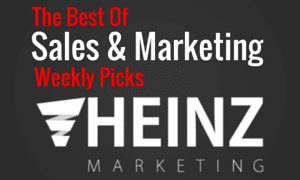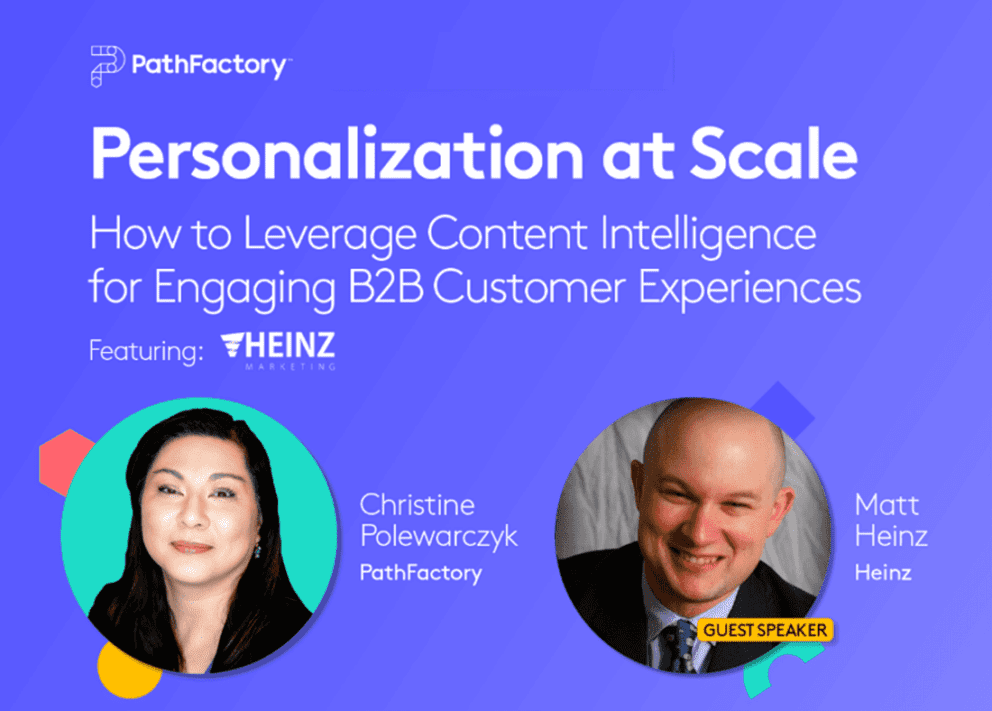Unlocking the Power of Personalization in B2B Healthcare Marketing

By Karla Sanders, Engagement Manager at Heinz Marketing
Personalization has become increasingly important in the B2B healthcare industry as companies seek to differentiate themselves from competitors and connect with prospects and customers on a deeper level. By customizing your messaging, using data to personalize your content, tailoring your website experience, and lead nurturing efforts, you can create a more engaging and relevant experience for your audience, which can drive better results for your business.
The benefits of personalization are clear. According to a recent study by Salesforce, 84% of customers say being treated like a person, not a number, is very important to winning their business. Furthermore, personalized email campaigns can generate up to 6 times higher transaction rates than non-personalized campaigns.
So, how can you leverage the power of personalization in your B2B healthcare marketing efforts? Here are some tips to get you started:
Segment Your Audience
The first step in personalizing your marketing efforts is to segment your audience into different groups based on their needs, interests, and behaviors. This allows you to create targeted messaging and content that resonates with each group.
For example, you might segment your audience based on job title, industry, or geographic location. Then, you can customize your messaging and content to meet the specific needs and interests of each group.
Use Data To Personalize Your Content
Personalization also involves using data to tailor your content to the interests and behaviors of individual prospects and customers. By tracking website activity, email engagement, and other data points, you can create targeted campaigns that showcase content that’s relevant to their interests.
For example, if a prospect has downloaded a whitepaper on a particular topic, you can send them related content or offer them a personalized demo based on their interests. By doing so, you can create a more valuable and personalized experience for your audience.
Leverage Personalization in Your Account-Based Marketing Efforts
Account-based marketing (ABM) is a B2B marketing strategy that involves targeting a specific set of accounts with personalized messaging and content. Personalization is a key component of ABM, as it involves tailoring your messaging and content to the specific needs and interests of each account.
By leveraging personalization in your ABM efforts, you can create a more engaging and relevant experience for your target accounts, which can help you build stronger relationships and drive more business.
Personalize Your Website Experience
Your website is often the first point of contact with prospects and customers, so it’s important to make a good first impression. One way to do that is by personalizing the website experience based on the interests and behaviors of individual visitors.
For example, you might use website tracking to understand which pages a visitor has viewed and which content they’ve engaged with. Then, you can use that data to personalize their website experience by showcasing relevant content, offering personalized calls to action, and providing a more personalized browsing experience overall.
Use Personalization To Improve Lead Nurturing
Lead nurturing is the process of building relationships with prospects over time in order to convert them into customers. Personalization is a key component of effective lead nurturing, as it involves tailoring your messaging and content to the specific needs and interests of each prospect.
By using email marketing and retargeting ads to deliver personalized content that’s tailored to each prospect’s interests and behaviors, you can create a more engaging and relevant experience for your prospects, which can help you build stronger relationships and drive more business.
In conclusion, personalization is a powerful tool that B2B healthcare marketers can use to create a more engaging and relevant experience for their prospects and customers. By customizing your messaging, using data to personalize your content, tailoring your website experience, and lead nurturing efforts, you can differentiate your company from competitors and drive better results for your business.






